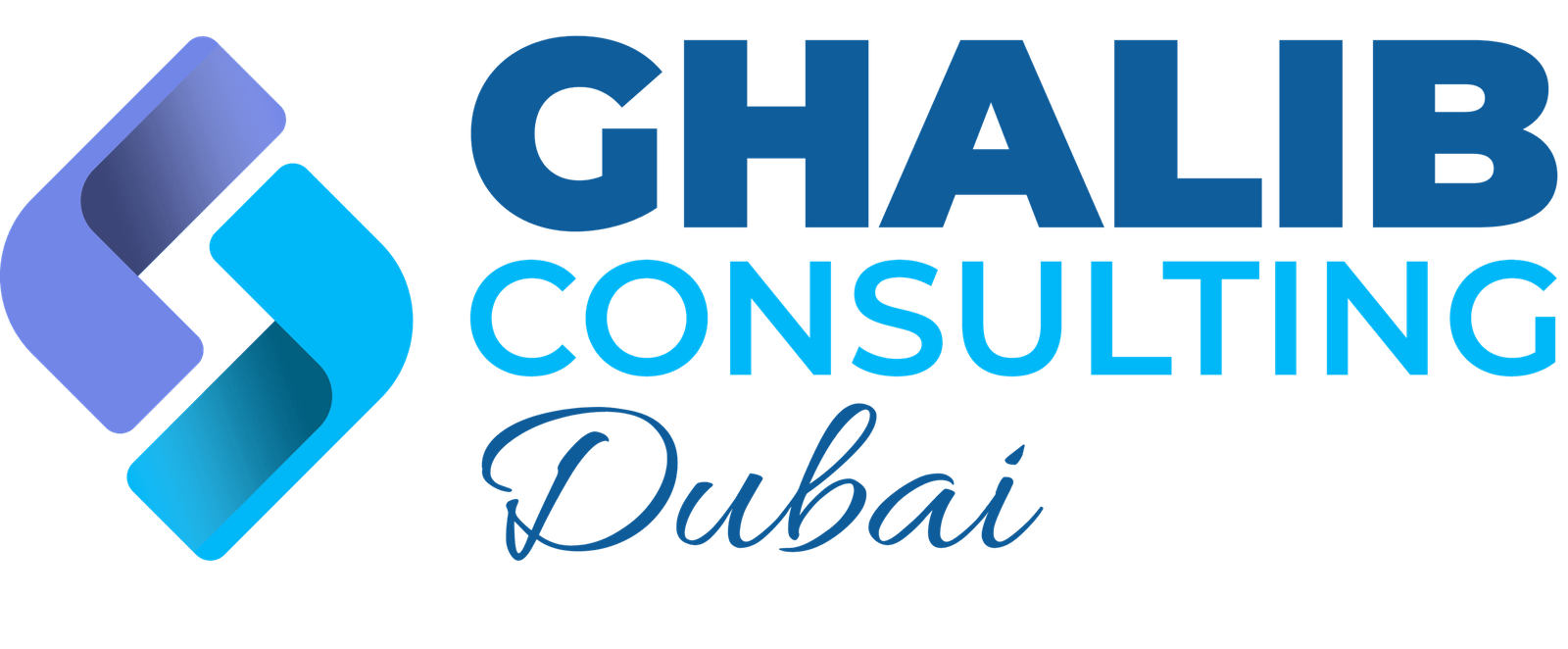Phone: +966-50-7024644 | Email: info@ghalibconsulting.com
Table of Contents
5 Steps to Transform Your Business Processes for Growth in the UAE & KSA
In the dynamic economic landscapes of the United Arab Emirates and Saudi Arabia, driven by ambitious visions like UAE Centennial 2071 and Saudi Vision 2030, business transformation is no longer a luxury—it’s a necessity. Companies that cling to outdated, manual processes risk being left behind by more agile, efficient competitors.
Transforming your business processes isn’t just about adopting new software; it’s a strategic overhaul that enhances efficiency, reduces costs, improves customer experience, and drives sustainable growth. Here’s your actionable 5-step guide to successfully transform your business operations in the UAE and KSA.
Why Process Transformation is Critical for UAE & KSA Businesses
The GCC region is rapidly digitizing. Governments are leading by example with smart initiatives, and customers expect faster, more seamless services. Inefficient processes lead to:
- High Operational Costs: Wasted resources on manual tasks and duplication.
- Compliance Risks: Difficulty adhering to evolving VAT, ESR (Economic Substance Regulations), and corporate tax laws.
- Poor Customer Experience: Slow service delivery and error-prone operations.
- Stunted Growth: Inability to scale operations efficiently to capture new opportunities.
The 5-Step Framework for Successful Business Transformation
Step 1: Map & Analyze Your Current State (The “As-Is”)
You can’t improve what you don’t understand. Begin by meticulously documenting your existing processes.
- Action: Identify core workflows—from lead-to-cash and procure-to-pay to financial reporting. Use flowcharts to visualize each step, decision point, and stakeholder involved.
- Local Consideration: Note where local regulations (e.g., UAE AML compliance or KSA e-invoicing (Fatoorah)) impact your workflows. This highlights critical compliance touchpoints.
Step 2: Identify Inefficiencies & Set Clear Goals
With your processes mapped, pinpoint the bottlenecks, redundancies, and manual handoffs.
- Ask: Where are the delays? Which tasks are repetitive and prone to human error? What frustrates employees and customers?
- Goal Setting: Define what success looks like. Goals should be SMART (Specific, Measurable, Achievable, Relevant, Time-bound). Examples: “Reduce invoice processing time from 10 days to 2 days within 6 months” or “Cut operational costs by 15% in the next fiscal year.”
Step 3: Design & Plan the Future State (The “To-Be”)
This is the creative phase. Redesign your processes for maximum efficiency and effectiveness.
- Automate: Leverage Cloud ERP systems (like Oracle NetSuite or Microsoft Dynamics), RPA (Robotic Process Automation), and AI-powered tools to automate manual tasks like data entry, report generation, and approval workflows.
- Simplify: Eliminate unnecessary steps and streamline approvals. Design a lean, digital-first workflow.
- Localize: Ensure your new process design integrates seamlessly with MOHRE (UAE) or Qiwa (KSA) platforms for HR and FTA or ZATCA portals for tax compliance.
Step 4: Implement Technology & Change Management
A new process is only as good as its adoption. This step requires careful execution.
- Phased Rollout: Implement changes in phases, starting with a pilot department. This minimizes disruption and allows for adjustments.
- Invest in Training: Comprehensive training is non-negotiable. Employees in Dubai and Riyadh need to understand the “why” behind the change and feel confident using new tools.
- Choose the Right Partners: Work with consultants who understand both technology and the local business culture. Ghalib Consulting provides expert guidance on selecting and implementing the right financial and operational tools for the GCC market.
Step 5: Monitor, Measure, and Optimize
Transformation is a continuous journey, not a one-time project.
- Track KPIs: Monitor the Key Performance Indicators (KPIs) you set in Step 2. Are you hitting your targets for speed, cost, and accuracy?
- Gather Feedback: Regularly check in with your team for feedback on the new processes. They are your best source for identifying further improvement areas.
- Iterate: Use the data and feedback to refine and optimize your processes continuously. The market evolves, and so should your operations.
How Ghalib Consulting Can Guide Your Transformation
Navigating a business transformation in the complex regulatory environments of the UAE and KSA requires expert local knowledge. Ghalib Consulting offers more than just financial advice; we provide end-to-end strategic partnership.
We help you:
- Conduct in-depth process and feasibility analysis.
- Select and implement the right technology stack (ERP, RPA, Advanced Excel/Power BI models).
- Ensure regulatory compliance throughout the transformation.
- Develop customized financial models to forecast the ROI of your transformation efforts.
Ready to build a faster, smarter, and more profitable business?
Don’t let inefficient processes hold you back from achieving your growth potential in the Middle East. Contact Ghalib Consulting today for a free, no-obligation consultation to discuss your business transformation journey.

